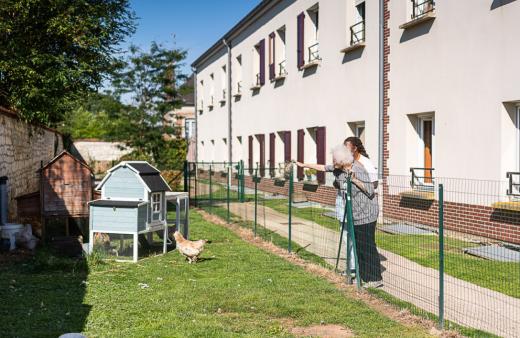Understanding and caring for Alzheimer’s disease: our European initiatives

Improving awareness to improve care: such is the approach chosen by Korian teams to talk about Alzheimer’s in anticipation of 21 September, the annual World Alzheimer’s Day. Over the course of several days, everyone is taking part in the conversation in the European countries where Korian is active: Belgium, the Netherlands, France, Germany, Spain, Italy…. After all, caring for people who suffer from this disease is a fact of daily life for many of our employees. They are keen to share their on-the-ground experiences and expertise so people may better understand the reality of the disease, as well as the therapeutic approaches used to treat it.
In Italy, for instance, a bus has embarked on a 1,000+ kilometres tour of the country. It will make over ten stops in cities from Bari to Genoa featuring conferences, meetings, and more, to make the “invisible disease” more visible by bringing testimonies into the field.
Carers, families and all interested parties generally will be welcome in the facilities to hear employee accounts and testimonies as part of the many “open days” organised in several European countries. Local communities and visitors will have the opportunity to attend conferences and discussion sessions, and to discover the expert and caring support provided by Korian’s. In Germany, the conferences will discuss how to communicate with people suffering from Alzheimer’s, as well as the right behaviours and approaches to adopt. Several digital initiatives complement these open days aimed at local audiences: in France, for instance, the Medical Department will lead several one-hour online conferences to inform families and employees and help them better understand the nature of Alzheimer’s disease.
Following the theme “I have Alzheimer’s! So what?”, Belgium and the Netherlands choose to show that, with the right care, residents are able to actively take part in their day-to-day surroundings. As such, facilities have the latitude to organise specific activities that work on residents’ long-term memory: exhibiting artwork made by residents with and without cognitive impairments, putting on shows or plays, compiling a cookbook or creating story books for children, etc.
Finally, in addition to the initiatives implemented in facilities, Spain has chosen to communicate more widely with a prevention campaign centred on a two-part, twelve-minute film: shot with patients and carers, it aims to shatter stereotypes and showcase facilities’ new units dedicated to Alzheimer’s care. Indeed, in Spain as elsewhere in Europe, Korian teams strive to improve the understanding of Alzheimer’s disease in order to improve care for patients and their families.
